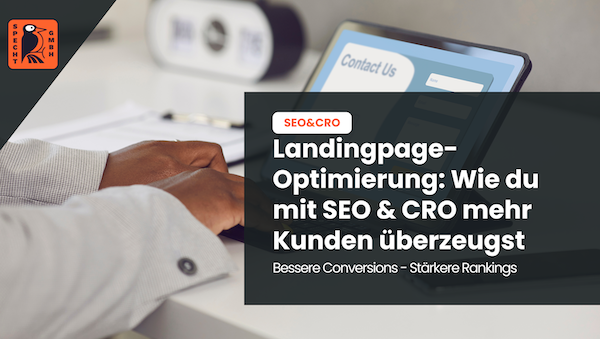In a nutshell: What is overoptimization?
We talk about over-optimization when SEOs take unauthorized SEO measures in the OnPage- and OffPage area carry out. Consequently, there is a penalty, which can lead to loss of ranking, up to de-indexation.
What is overoptimization?
SEOs and website owners are always striving to get their website listed in the search engine results (SERPs) as high as possible. While many work cleanly, others overdo it or make use of SEO measures that violate the rules and guidelines of a search engine.
This can be, for example, an unnatural link growth or the excessive use of keywords (KEYWORD-STUFFING).
Over-optimization is also known as an "over optimization penalty" and is penalized by the respective search engine when detected. This often results in a massive loss of ranking, causing traffic to plummet. If a particularly large over-optimization has been carried out, in the worst case it can even lead to the website being de-indexed.
-
Free
SEO strategy meeting
In a free SEO strategy talk, we uncover untapped potential and develop a strategy to help you become more successful on Google.

- More organic visibility
- More organic visitors to your website
- More inquiries & sales
When is there talk of over-optimization?
What can such over-optimization actually look like and what examples are there of it?
Below are some examples of when we talk about over-optimization:
- Rapid link growth: While the link growth of a page used to be rather low, it suddenly increases strikingly. For Google and Co. a clear sign that too fast and thus unnatural link growth is taking place here. This is the case, for example, when SEOs buy links.
- Keyword stuffing: In order to increase the keyword density of content, many SEOs artificially insert search terms to increase the relevance of a keyword. This is also annoying and can lead to noticeable over-optimization.
- Hidden text: With this method, text with keywords is integrated at a specific position and then formatted to match the background color. It is therefore not visible to the user. The method originates from the black hat SEO area.
- Link exchange: A look at the webmaster guidelines shows that direct link exchange (after agreement between two website operators) is anything but welcome. If search engines recognize a clear link exchange structure here, they classify it as overoptimization.
- Keyword links: If links are set for internal and external linking, excessive use of keywords in the link text should be avoided. Otherwise you will be penalized. Here it can help to ensure sufficient variety and not to use keywords exclusively in the links.
How is over-optimization avoidable?
If webmasters want to optimize their project, it helps, among other things, to look at Google's webmaster guidelines. Because here it is explained exactly how proper search engine optimization works and what all needs to be observed.
But the following also applies to content creation: quality before quantity. Instead of feeding an article excessively with artificial keywords, it makes more sense to offer the user added value. In other words, articles are not primarily created for search engines, but for users.
- I am one of the leading SEO experts in Germany
I am known from big media such as Stern, GoDaddy, Onpulson & breakfast television and have already worked with over 100+ well-known clients successful on Google.
Google rating
Based on 185 reviews
Trustpilot rating
Based on 100 reviews
Conclusion: What is over-optimization?
If SEOs and webmasters observe a few rules of thumb and do not make use of controversial SEO measures, overoptimization rarely if ever occurs. Here it is particularly important to focus on naturalness and primarily to create added value for the website visitors. Quality before quantity!






